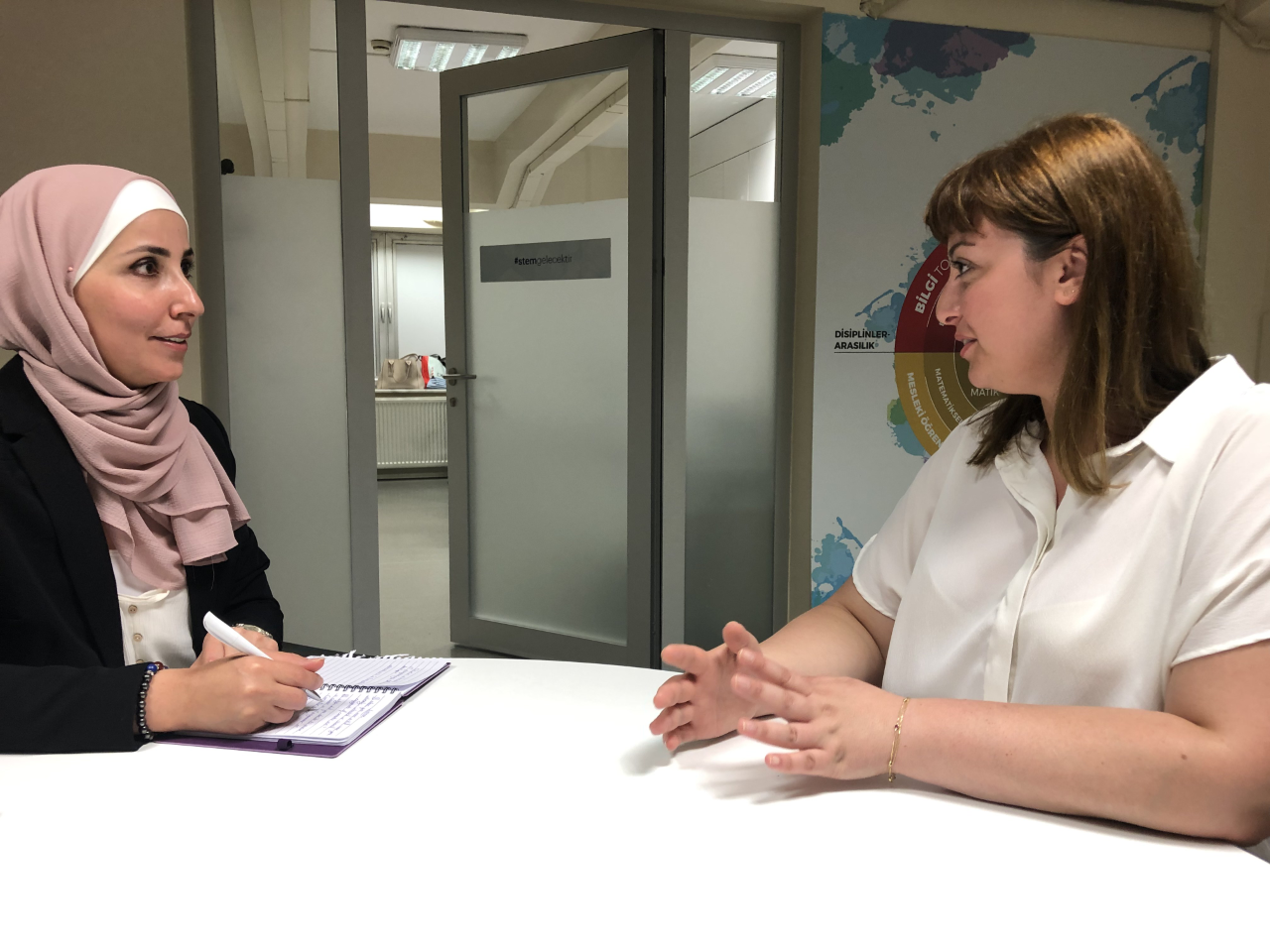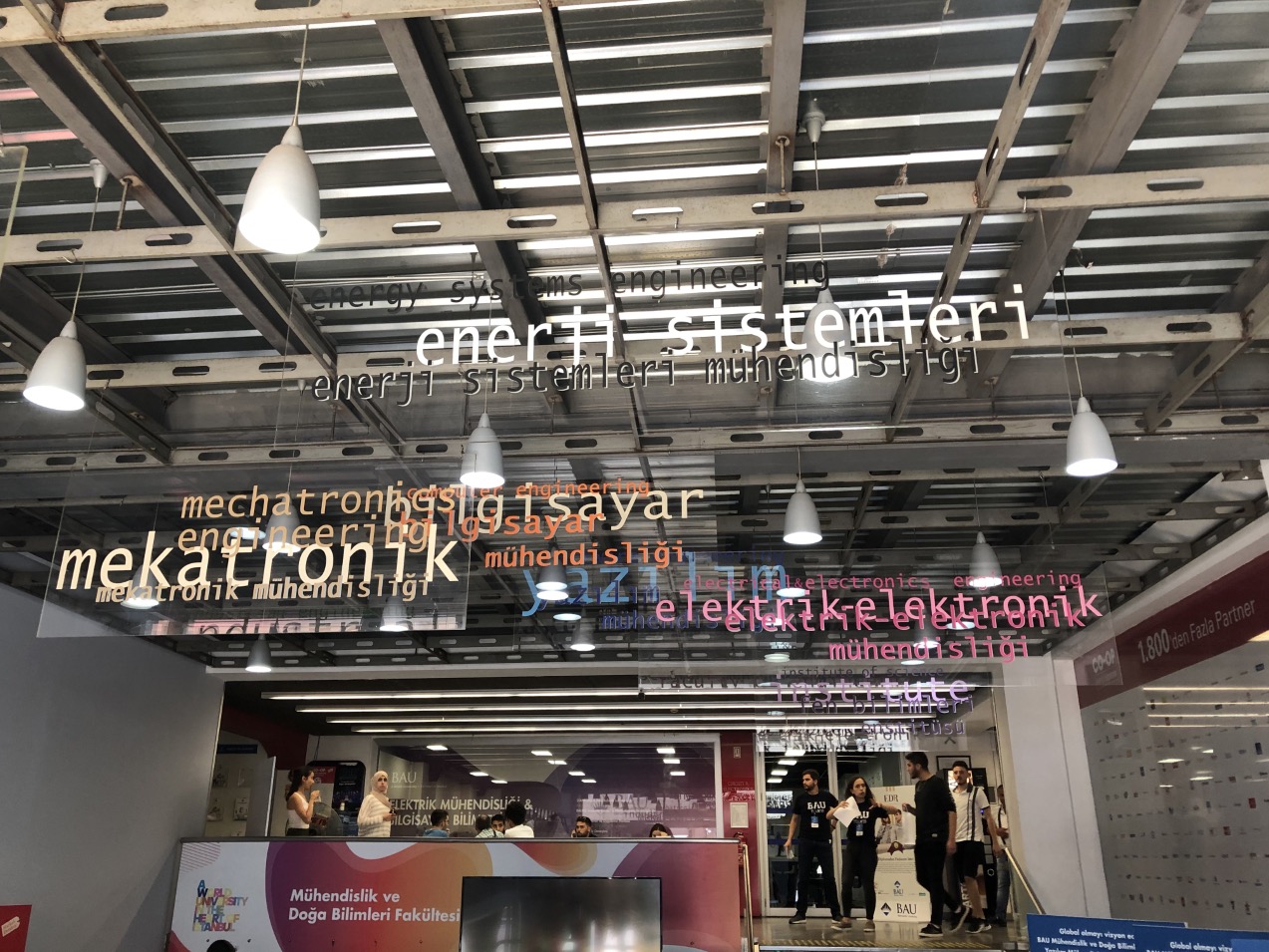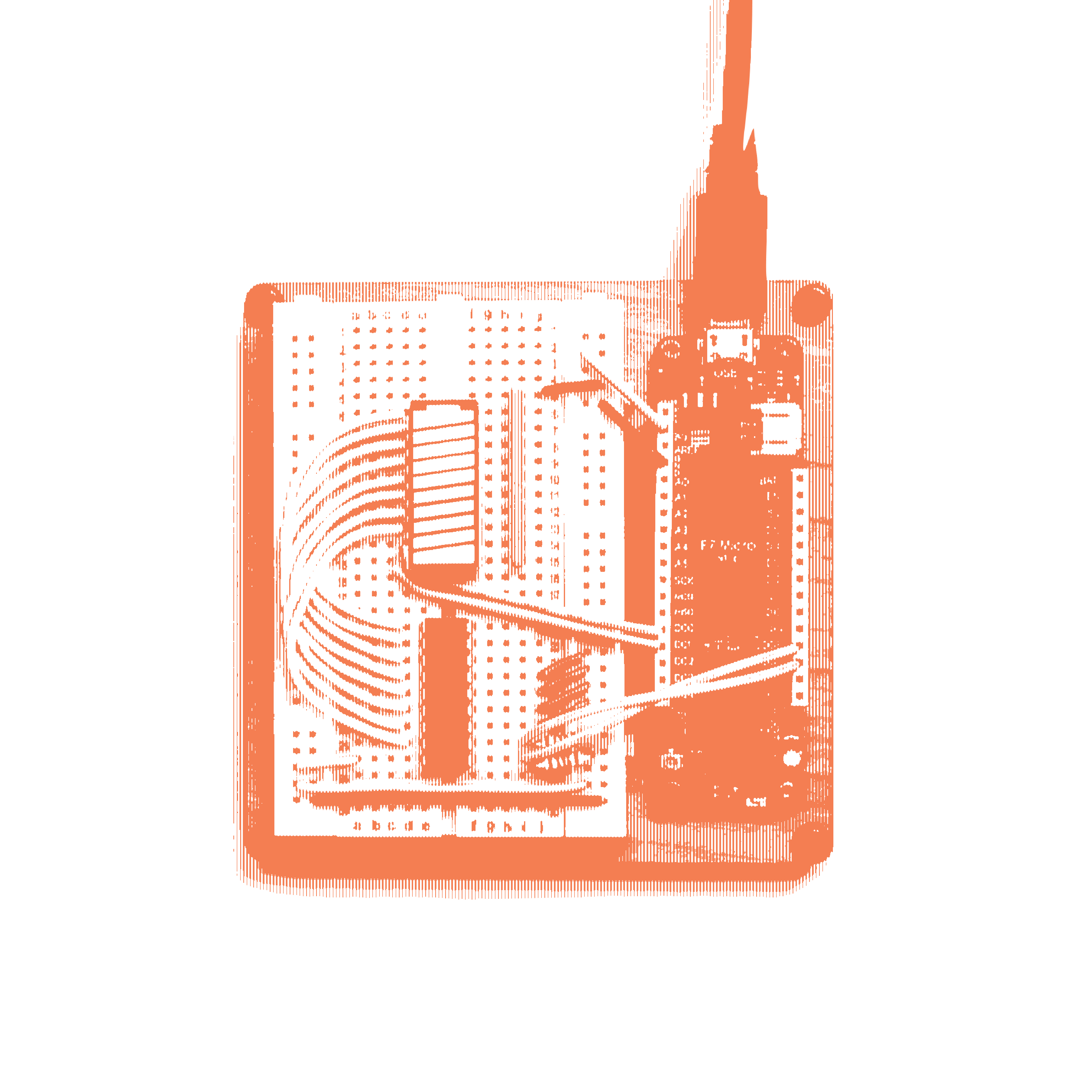
At Bahcesehir University’s BAU STEM Center, Shirin Alhroob met Ayşe Gül Çelenk, a project manager. The Center specializes in STEM teachers' education at the in-service level. Three faculty members, fellows, and research assistants work at the center.
As part of the externally funded Integrated Teaching Project (ITP) at BAU STEM, several programs have been developed for the last three years for classrooms, science, and mathematics teachers. All programs emphasize equity, interdisciplinarity, and rigor in STEM learning and teaching. Over 5,000 teachers from Turkey, Caucasia, Southern Europe, and Canada have benefited from their hybrid (online and face-to-face) programs. The BAU STEM Center has a collaboration and partnership with the Go-Lab project, an online program for science teaching, with a goal of developing joint programs for STEM education in Europe.
Shirin Alhroob: When you were a child, were you interested in using computers?
Ayse Gul Celenk: When I was a kid, I was very curious about the computer. Unfortunately, we didn't have a computer so that's why I was spending time with my friends who had computers.
SA: Why did you decide to pursue a career in IT programming or computer science?
AC: I can tell you that I didn't make my own career plan. My family helped me and after I followed the requirements of the new world.
SA: How often do you feel accepted by your male colleagues in the workplace or in school?
AC: My company is a place where everyone has equal conditions. Before I've worked for many companies and I've always been lucky in those places too. I've never encountered gender discrimination.
SA: What are the obstacles that prevent women in Turkey from becoming involved in the IT sector?
AC: There is a common perception that the IT sector is more suitable for men. With the project and other studies, the perception of this issue is beginning to change. I think it is very important. This perception should change. Because I think that women do not choose this field because of their lack of self-confidence, even though they are quite willing and enthusiastic about it.
SA: How does the payment structure for women compare to the payment structure for men?
AC: The structure of payments did not vary according to gender in all institutions or companies where I worked. However, I hear from my colleagues that women in other institutions are facing long-term disadvantages in their salary.
SA: How does IT programming open a new window of opportunity for women?
AC: This is an area that women prefer less. However, I do not think that being a minority is an advantage. As far as I know, there is no opportunity or advantage that IT fields offer to women.
SA: How can IT programming skills improve women's likelihood of employability and allow them to work remotely?
AC: Although there is remote work in our country in this field, I think it is not very common.
SA: Is there gender segregation in IT sector as observed in other sectors?
AC: I think it is the same as the other sectors. As in other sectors, I observe that the rules of the majority apply.
This interview has been edited for clarity.








